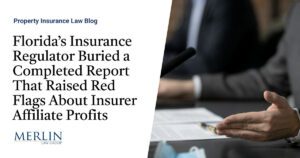Propane Industry Desperate To Be The 'Near-Zero Emissions' School Bus Solution

The half-million school buses across the United States are expected to be replaced over the next two decades. While electric buses are viewed as an ideal replacement for the diesel-powered fleet, the fossil fuel industry is trying to sell the fabricated idea of propane as a cheaper “near-zero emissions” alternative.
2023 Kia EV6 GT | Jalopnik Reviews
The Propane Education Research Council (PERC), a trade association established by Congress in the 1990s, is the most powerful group trying to sway school districts from sea to shining sea. Vox has a deep-dive summary of how expansive PERC’s propaganda campaign is and how far the organization is willing to bend the truth on propane’s environmental impact.
Many Americans, some 50 million households, have a relatively limited relationship with propane that begins and ends with the burger, hotdog, or corn husk on their barbecue gas grills. Beyond its most popular use, the liquified product of petroleum gas additionally heats approximately 12 million homes that use propane fuel where natural gas infrastructure doesn’t exist. Very few people — less than 1 percent — fuel their vehicles with an alternative like propane, according to data from the Energy Information Administration.
But the propane industry sees a chance to grow its share of the auto sector by locking in school districts, and if you use a propane grill, fees on the fuel you buy are driving campaigns that don’t just include school assemblies, but other advertisements and influencers aimed at convincing kids, parents, and school officials to invest in the propane school bus.
PERC’s campaign to win hearts and minds heavily relies on two points about propane: it’s clean and affordable. Yes, propane is inexpensive compared to an electric bus, costing at least $350,000. However, propane is still a fossil fuel, emits harmful pollutants and damages air quality.
The industry frequently uses the phrase “near-zero emissions” to describe the propane bus. This is disingenuous. The EPA recognizes that propane buses produce some lower emissions, like nitrogen oxides, than other fuels, but they still do pollute. Propane still emits many of the same hazardous pollutants as diesel, and the industry fully ignores the toll of greenhouse gas emissions.
Vox outlines how school buses are the front line in the struggle to transition heavy vehicles to zero emissions power as the fossil fuel industry fights to secure a significant market for the foreseeable future. Be sure to read the entire story here.




